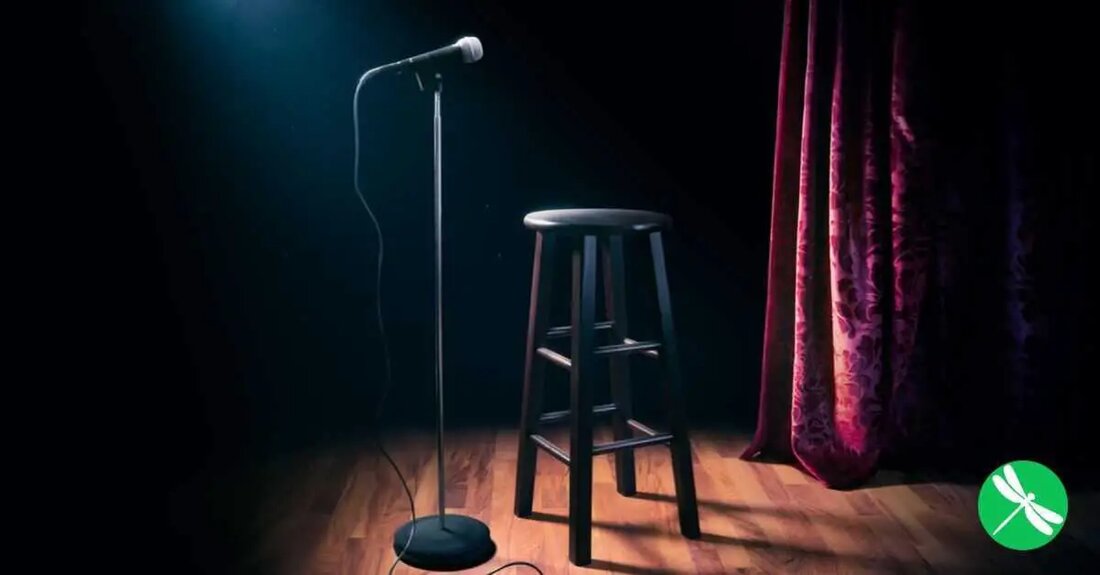A heartbreaking story of a mother and daughter, the ups and downs of dementia
A funny success story Dani Klein Modisett, author and former stand-up comedian, brought her mother from Manhattan to Los Angeles in 2016. After hearing from a Manhattan-based friend that her mother's memory had deteriorated, Dani knew that sending her mother to an Alzheimer's care center was the right decision. But just a year after bringing her to Los Angeles, she noticed her mother was sad and withdrawn. At 84, her mother appeared depressed, empty and was barely eating. For a brief moment, Dani began to question her decision to relocate her mother...

A heartbreaking story of a mother and daughter, the ups and downs of dementia
A funny success story
Dani Klein Modisett, an author and former stand-up comedian, brought her mother from Manhattan to Los Angeles in 2016. After hearing from a Manhattan-based friend that her mother's memory had deteriorated, Dani knew that sending her mother to an Alzheimer's care center was the right decision. But just a year after bringing her to Los Angeles, she noticed her mother was sad and withdrawn. At 84, her mother appeared depressed, empty and was barely eating. For a brief moment, Dani began to question her decision to relocate her mother.
Thinking about what she could do to help her mother led Dani to services at her mother's care center and private mentoring through groups like Visiting Angels. Despite these options, Dani ultimately decided to focus on laughter and searched social media for a comedian with an interest in geriatrics. With her years of experience in comedy, she knew her mother needed some fun in her life.
Shortly afterwards, Dani was connected with a retired comedian named Sue who was visiting the care center. In a fantastic way, Sue and Dani's mother hit it off straight away, joking and giggling. Sue brought some sociability into Dani's mother's life and got along with her previous life.
Over time, Sue worked formally with Dani's mother 10 hours per week and significant changes were noted. Dani's mother started eating again and was more active with other people. Even when Sue wasn't there, she happily waved, smiled, hummed, and interacted with caregivers and other residents. Dani describes this change in her mother’s health and well-being as “…truly remarkable.”
Laughter on Demand: The Best Medicine
With her newfound respect for laughter in caring for dementia patients, Dani founded the company Laughter On Call. Under the motto "Courage. One Laugh at a Time," Dani's company can pair individual dementia patients with a comedian, hold laughter workshops for staff in care centers, or host a large comedy show for all residents of a care center. Currently, services are limited only in California.
Why comedians are successful
Laughter on Call care is referred to as humor therapy by researchers and health professionals. Humor therapy is studied worldwide and offers positive effects and lifts the mood of various patients. Whether young or old, a good laugh from a clown, humor therapist, or comedian can help with recovery.
Humor therapy works for dementia patients because some types of laughter and social communication are maintained even as the disease progresses. Although dementia patients lose cognitive function over time, activated laughter and smiling can restore a sense of normality for these patients. However, dementia patients are also easily offended, confused or sensitive to some jokes. When working with an Alzheimer's patient, playful insults should be avoided and your jokes should be tailored to your audience.
Undeniably, the story of Dani and her mother is relatable to many Americans. With the increasing rate of one in 10 people over the age of 65 developing Alzheimer's disease each year, there are millions of family members in America who face the challenges of this progressive disease. Services like Dani's will definitely be in demand and hopefully reach more dementia patients soon!

 Suche
Suche
 Mein Konto
Mein Konto
